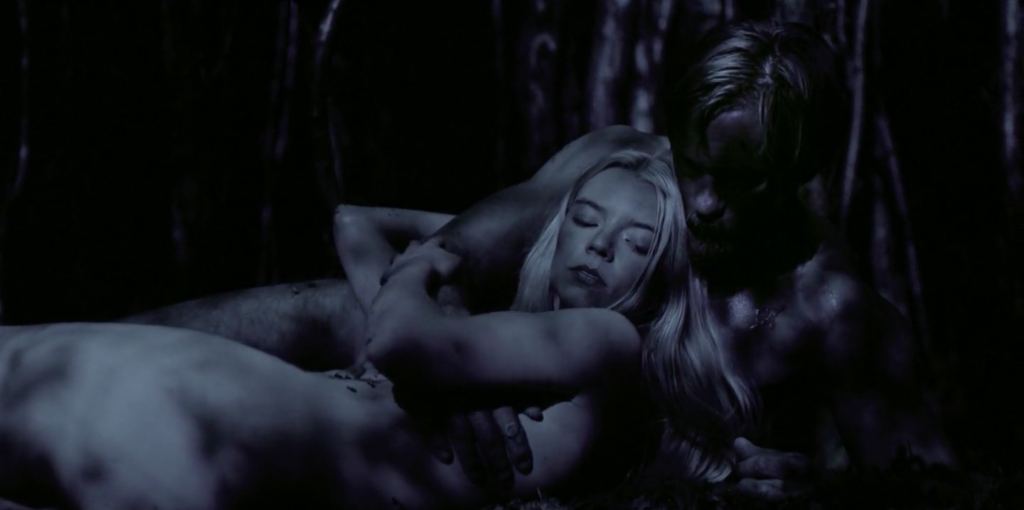
With his film The Northman (2022), filmmaker Robert Eggers returns to the folkloric roots of William Shakespeare’s Hamlet. Eggers revels in the physical hardships and bloody violence of the ninth century, offering his audience one spectacle of gory horrors after another. Eggers’ Viking epic is a 90 million dollar blockbuster first and foremost and a work of folklore revivalism second.
It’s difficult not to compare The Northman with The Vikings (1958) since not only do both films deal with the same historic milieu but they’re also stories of vengeance and the softening of a hero’s heart. For Eggers emotion only seems to exist in the sphere of violence. Love, hate and desire can only find their expression in acts of bodily destruction in The Northman. The Vikings, a somewhat more traditional Hollywood production, privileges characterization and human interaction as vessels for emotional affectiveness. Amleth (Alexander Skarsgård) and Eric (Tony Curtis) are fundamentally the same type of folkloric hero though each is rendered with a different overall priority. For director Richard Fleischer it was paramount that the spectator related to and believed in Eric while Eggers is content to shuttle his viewer along on wave after wave of medieval violence.
If Eggers’ choice to adapt the tale of Amleth is not rooted in exploring the human aspects of vengeance then what motivated the filmmaker? Well, Eggers has often expressed a particular passion for Nordic myths and general folkloric culture so it’s clear why the project was so attractive to him. But Eggers’ decision to embrace only the most corporeal aspects of the drama seems contrary to his interests in folk tales and legends. The Northman has a handful of dreamy, fairytale-like images scattered throughout but nothing on the scale of the films of Aleksandr Ptushko, the preeminent filmmaker of Slavic and Nordic folkloric adventure films.
The only available explanation is that The Northman is meant to suggest a return to the specific historical moment when the legend of Amleth first took hold of Viking culture. Eggers’ agenda is to go back beyond Shakespeare’s telling of the myth and then ground a tale of supernatural powers in the visceral physical reality of ninth century living. This is the same modus operandi as The Witch (2015), suggesting that for Eggers one can only revive an element of folklore by dressing it up in a single moment’s preconception of historical accuracy. That is to say that The Northman looks, in every frame, as historically accurate as an audience in 2022 believes a historically accurate ninth century Northern Europe to be.
Intentionally or not, The Northman subverts the very nature of myth to the extent that it doesn’t register as folklore at all. As impressive a visual feast as The Northman is it is never the stuff of legends nor does it succeed in being anything other than Robert Eggers’ dream of Viking adventures. And that dream is as bombastically masculinist as any of Arnold Schwarzenegger’s Conan movies. Ultimately every aspect of The Northman, except its production design, fails to engross or to stimulate. The Northman is 300 (2006) passing itself off as arthouse chic.
